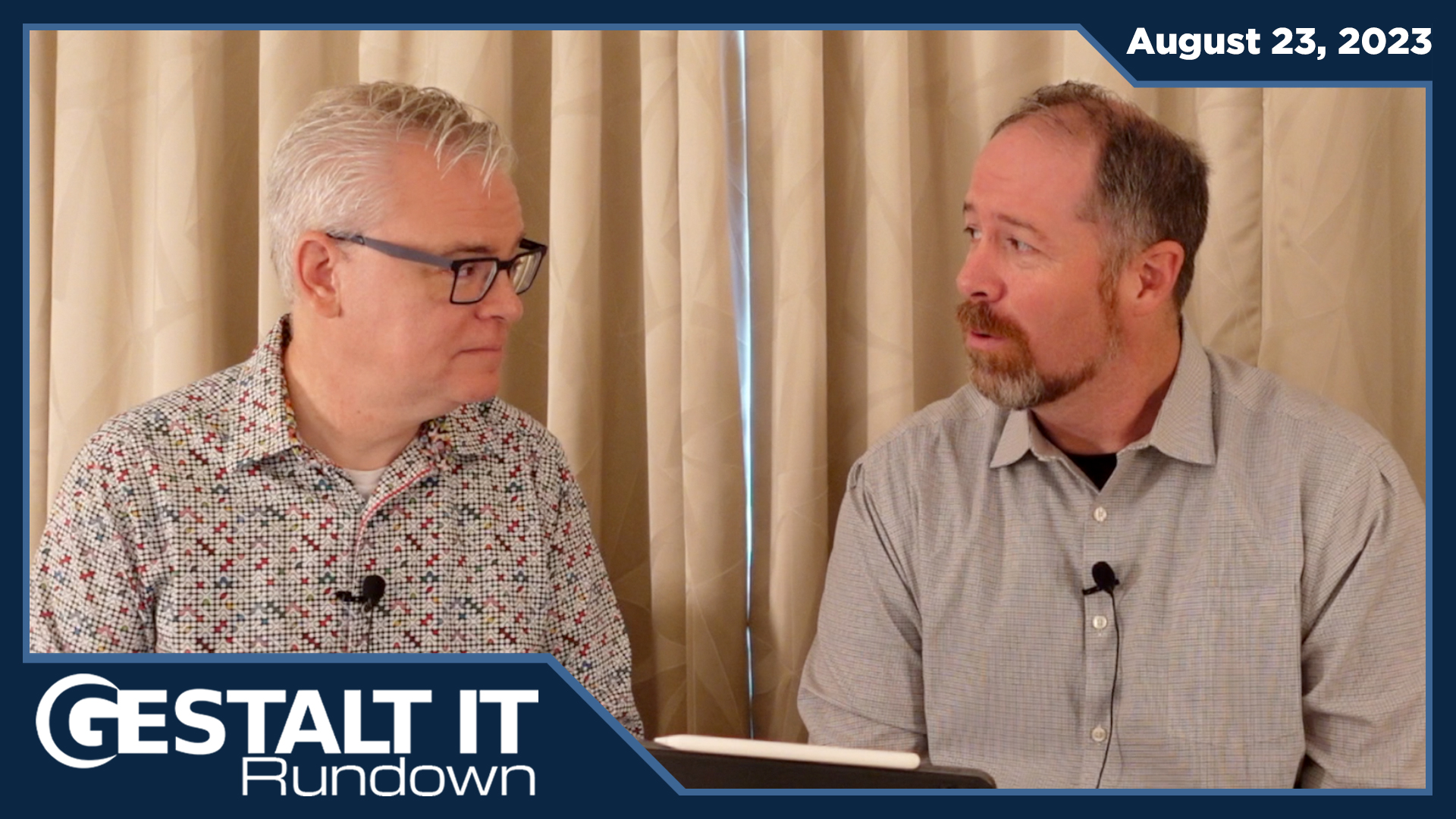 A new survey shows that open-source projects are abandoning copyleft licensing, VMware acquires the network analytics startup Nyansa, and IBM actually increased revenue. Rich Stroffolino and Tom Hollingsworth are talking about these and more on the Gestalt IT Rundown, your source for the IT news of the week.
A new survey shows that open-source projects are abandoning copyleft licensing, VMware acquires the network analytics startup Nyansa, and IBM actually increased revenue. Rich Stroffolino and Tom Hollingsworth are talking about these and more on the Gestalt IT Rundown, your source for the IT news of the week.
This week on the Rundown:
Canonical Announced Anbox Cloud
Low Tide for Digital Ocean?
Cloud Computing Like It’s 1988
Google Partners with Airtel
Google Cloud announced a partnership with Airtel, India’s third largest telecom operator, which will offer G Suite to small and medium business as part of the telco’s service portfolio. Airtel serves over 325 million people in India, including 500,000 small and medium businesses. Microsoft announced a similar deal with India’s largest telco, Reliance Jio, back in August. Third place telecom, third place public cloud.
Chromebooks Getting Updates Through Graduation
Google announced it was update the support offered through its Chrome OS Automatic Update program for education, now offering 8 years of updates for devices launching in 2020. This does come at a price, Google did raise the Chrome Education update price, a one-time fee to unlock fleet management, 24/7 support, and commercial features, from $30 to $38. Is this Google trying to pad their education lead, or feeling the need to hit the gas as competition heats up?
IBM Grows Revenue
IBM, a for-profit company, saw revenue grow for the first time in 5 quarters. The company reported revenue of $21.77 billion, up 0.04% on the year. I guess they shook out the couch cushions. Red Hat revenue continued to grow, up 24% on the year, helping its Cloud and Cognitive Software BU grow 9% to $7.24 billion in revenue. IBM Systems revenue, aka mainframes, was up 16% to $2.84 billion, with z-series revenue up 60%. People want that sweet z15 magic. All other business units were down on the year. Not a lot of people thought buying Red Hat was a bad move, but seems to be helping their bottom line pretty quickly.
VMware Buys Nyansa
VMware announced it plans to buy the network analytics startup Nyansa. The plan is to integrate Nyansa’s Voyance analytics platform into VMware SD-WAN by VeloCloud, meaning they get the Tech Field Day presenter trifecta. VMware is getting some interesting pure play analytics here, but what most interests me is if they will expand the crowd sourced nature of Nyansa’s platform. They had a feature that would let you compare your network performance to others with a similar configuration, giving you relative metrics to go along with raw numbers. Is this larger dataset part of a larger trend here Tom? I’m thinking also of what HPE got with InfoSight from Nimble Storage .
Is Open-Source Licensing Copyleft Behind?
A new report from Whitesouce shows an increasing shift in open-source licensings habits. It found that in 2019 33% of software in their dataset used so-called copyleft licenses, like GPL derivatives, that allow developers to use code freely, but require providing the same licenses with any newly developed versions or forks from that code. Meanwhile 67% of software used permissive licenses like MIT or Apache 2.0, which allow users to use the code, but not require deerivates to be so licensed as well. Compare that to 2012, when 59% of software in the dataset were under copyleft licenses. The top ten open sourced projects are managed by Facebook, Google, and Microsoft, is this just a reflection that open source is pervasive within business?
The Gestalt IT Rundown is a live weekly look at the IT news of the week. It broadcasts live on YouTube every Wednesday at 12:30pm ET. To watch along, “Like” our Facebook page. Be sure to subscribe to Gestalt IT on YouTube for even more weekly video content.




